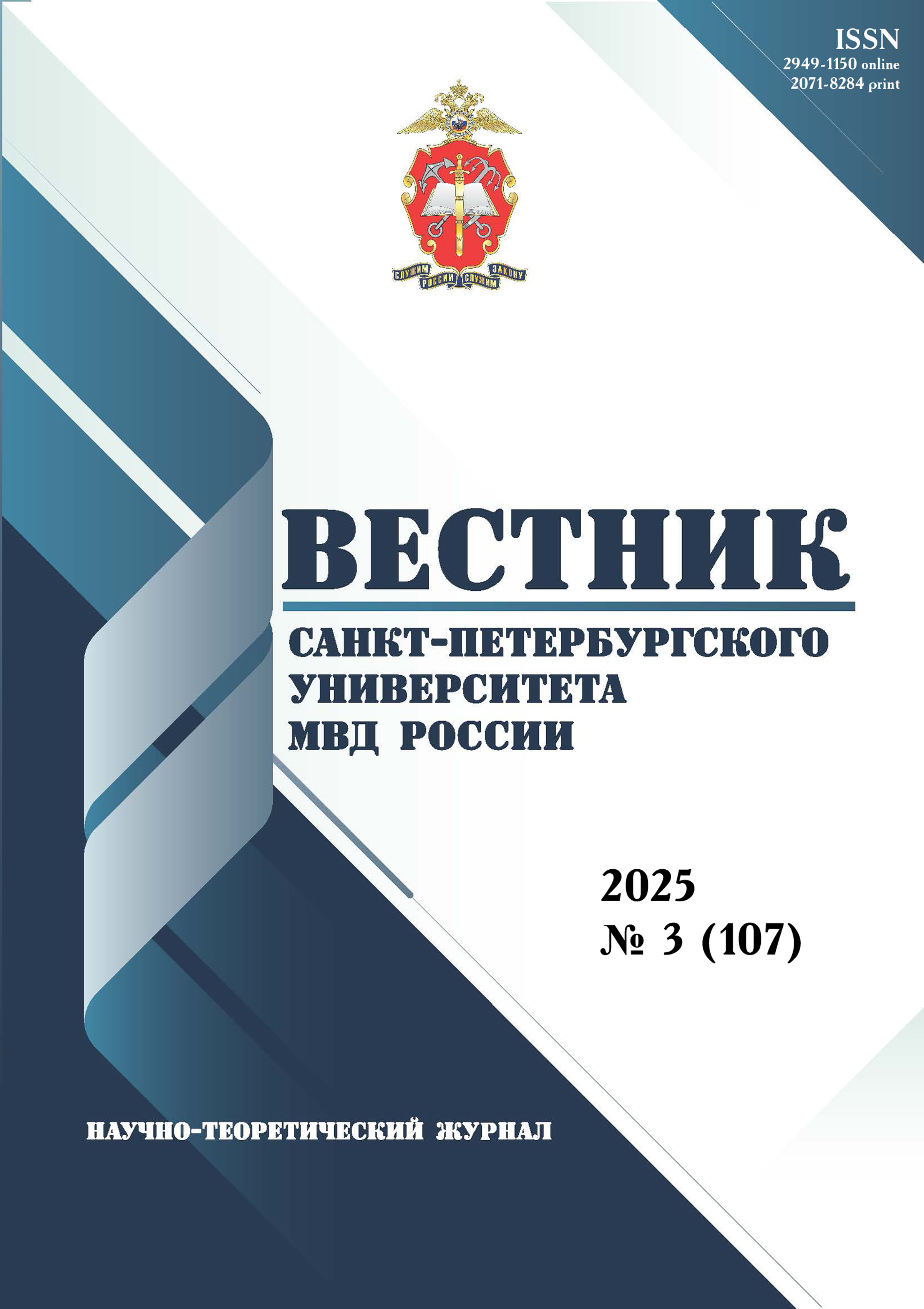employee from 01.01.2018 until now
Lyubercy, Moscow, Russian Federation
UDC 378
Introduction. The development of assessment models since the 20th century has shown a promising direction in tracking students’ achievements and obtaining results for their further professional growth. As society’s needs evolve, so does the need for training and forming the necessary knowledge, skills and abilities in a specific field of activity (educational, scientific and research). Data on achievements under modern conditions can be obtained using assessment methods, which are most often used in combination. The research is devoted to the analysis of the characteristics of models and methods of assessing educational and scientific achievements in the context of the transformation of pedagogical approaches. Relevance is due to the need to adapt assessment to the requirements of the information society and the competence-based approach, which contributes to the development of critical thinking, motivation and competencies of students. Methods. Analytical and comparative methods, systematisation and classification of data, as well as theoretical analysis were used. Fundamental models (B. Bloom, E. G. Guba, D. Kirkpatrick, M. Scriven, D. L. Stufflebeam, R. Tyler, J. Phillips) and assessment methods (diagnostic, formative, self-assessment, mutual assessment, criterion-referenced, summative) were studied. Results. Each model and method have specific strengths and weaknesses. The combined use of methods such as diagnostic and formative assessment to support learning, self-assessment and mutual assessment to develop reflection, as well as criterion-referenced and summative assessment to ensure objectivity, creates effective hybrid assessment systems. Conclusion. The results underline the importance of an integrated approach to assessment to achieve educational goals. Future research prospects are linked to the integration of digital technologies and artificial intelligence for the personalisation of assessment processes.
assessment, assessment models, assessment methods, educational achievements, competence-based approach, motivation, diagnostic assessment, formative assessment, self-assessment
1. Morgacheva N. V., Scherbatyh S. V., Sotnikova E. B. Ocenka i analiz urovnya estestvenno-nauchnoy gramotnosti studentov // Perspektivy nauki i obrazovaniya : elektronnyy zhurnal. 2023. № 2 (62). S. 66–84. https://doi.org/10.32744/pse.2023.2.4
2. Voronina M. F., Karpova E. A. Modeli ocenki effektivnosti obucheniya v kontekste kompetentnostnogo podhoda // Sociologiya i pravo. 2016. № 1 (31). S. 27–37.
3. Bakurova E. N., Parshutkina T.A., Kudryavceva O. M., Chernovol M. P. Professional'no-orientirovannyy distancionnyy kurs na inostrannom yazyke kak osnova formirovaniya nauchno-issledovatel'skih umeniy studentov vuza // Perspektivy nauki i obrazovaniya : elektronnyy zhurnal. 2023. № 2 (62). S. 262-279. https://doi.org/10.32744/pse.2023.2.15
4. Lobeyko Yu. A. Informatizaciya obrazovatel'noy sistemy: psihologo-pedagogicheskie aspekty // Fundamental'nye i prikladnye issledovaniya: problemy i rezul'taty. 2015. № 20. S. 43–48.
5. Vorob'ev N. E., Nizovaya T. N. Gumanisticheskie idei K. Rodzhersa v sovremennoy teorii i praktike obucheniya i vospitaniya // Izvestiya Volgogradskogo gosudarstvennogo pedagogicheskogo universiteta. 2006. №1. C. 71–76.
6. Giniyatullina A. A., Karimova S. A. Primenenie modeli Dzheka Filipsa dlya ocenki effektivnosti investiciy v obuchenie personala predpriyatiya (na primere kompanii «UK „Tatburneft'ˮ») // Bulatovskie chteniya. 2017. T. 5. S. 161–164.
7. Sultanova G. S. Taksonomiya Bluma kak instrument intellektual'no razvivayuschego obucheniya studentov // Vysshee obrazovanie segodnya. 2019. № 1. S. 14–19. https://doi.org/10.25586/RNU.HET.19.01.P.14
8. Hmel'nickaya N. I. Taksonomiya Bluma kak osnova ocenivaniya rezul'tatov obucheniya studentov // Sovremennaya vysshaya shkola: innovacionnyy aspekt. 2008. № 2. S. 77–81.
9. Churuksaeva I. V., Kukushkin S. G. Modeli ocenki effektivnosti obucheniya personala // Aktual'nye problemy aviacii i kosmonavtiki. 2010. № 6. S. 276–277.
10. Senge P. M. Pyataya disciplina : Iskusstvo i praktika obuchayuscheysya organizacii / pod red. Yu. Potemkinoy ; perevod. Yu. Konstantinovoy. Moskva : MIF, 2018. 496 s.
11. Kazakova M. I., Selivanova T. V. Ocenka effektivnosti obucheniya personala v usloviyah cifrovizacii // Vestnik Kemerovskogo gosudarstvennogo universiteta. Seriya: Politicheskie, sociologicheskie i ekonomicheskie nauki. 2022. T. 7, № 4 (26). S. 435– 443. https: //doi.org/10.21603/2500-3372-2022-7-4-435-443
12. Pesha A. V., Koropec O. A. Analiz relevantnosti suschestvuyuschih modeley ocenki effektivnosti korporativnogo obucheniya i razvitiya personala // Sovremennoe obrazovanie. 2017. № 3. S. 83–95. https://doi.org/10.25136/2409-8736.2017.3.24000
13. Dobrov R. G. Sravnitel'nyy analiz modeley ocenki effektivnosti obuchayuschih meropriyatiy v sisteme vnutrikorporativnogo obucheniya // Izvestiya Volgogradskogo gosudarstvennogo tehnicheskogo universiteta. 2013. № 5 (108). S. 65–69.
14. Dolzhenko R. A., Ilyushnikov K. K. Ocenka effektivnosti korporativnogo obucheniya: evolyuciya podhodov i perspektivy // Vestnik NGUEU. 2018. № 3. S. 26–43.
15. Guseva N. V. Ball'no-reytingovaya sistema kak effektivnoe sredstvo pedagogicheskoy diagnostiki pri obuchenii inostrannomu yazyku kursantov voennyh vuzov // Mir nauki, kul'tury, obrazovaniya. 2021. № 2 (87). S. 151–153.
16. Tomina E. F. Pedagogicheskie idei Dzhona D'yui: istoriya i sovremennost' // Vestnik Orenburgskogo gosudarstvennogo universiteta. 2011. № 2 (121). S. 360-366.
17. Borisenko N. A. «Barometr vliyaniya», ili Kakie faktory okazyvayut naibol'shee vozdeystvie na obuchenie. Recenziya na knigu: Dzhon Hetti «Vidimoe obuchenie» // Voprosy obrazovaniya. 2018. № 1. S. 257–265. https://doi.org/0.17323/1814-9545-2018-1-257-265
18. Smith K. A. Cooperative learning: Making “group workˮ // New Directions for Teaching and Learning. 1996. № 67. R. 71–82. https: //doi.org/10.1002/tl.37219966709
19. Gavrilova T. V. Vidy sovmestnogo obucheniya za rubezhom i v Rossii // Azimut nauchnyh issledovaniy: pedagogika i psihologiya. 2017. T. 6, № 4 (21). S. 42–45.
20. Suin L., Kovaleva A. G. Primenenie modeli understanding by design («obratnogo proektirovaniya uchebnogo processa») dlya obucheniya chteniyu i pis'mu na kitayskom yazyke // Otechestvennaya i zarubezhnaya pedagogika. 2024. T. 1, № 1 (97). S. 92–107. https://doi. org/0.24412/2224–0772–2024–97–92–107
21. Scriven M. The Methodology of Evaluation // Tyler R., Gagné R., Scriven M. (eds.) Perspectives of Curriculum Evaluation (AERA Monograph Series on Curriculum Evaluation, № 1). Chicago : Rand McNally, 1967. P. 39–83.
22. Erofeeva M. A., Kuznecov M. Yu., Kodirov B. R. K voprosu ob ispol'zovanii iskusstvennogo intellekta v nauchno-issledovatel'skoy deyatel'nosti obuchayuschihsya (ad'yunktov / aspirantov, studentov) // Vestnik Voronezhskogo gosudarstvennogo universiteta. Seriya: Problemy vysshego obrazovaniya. 2024. № 3. S. 19–22.















